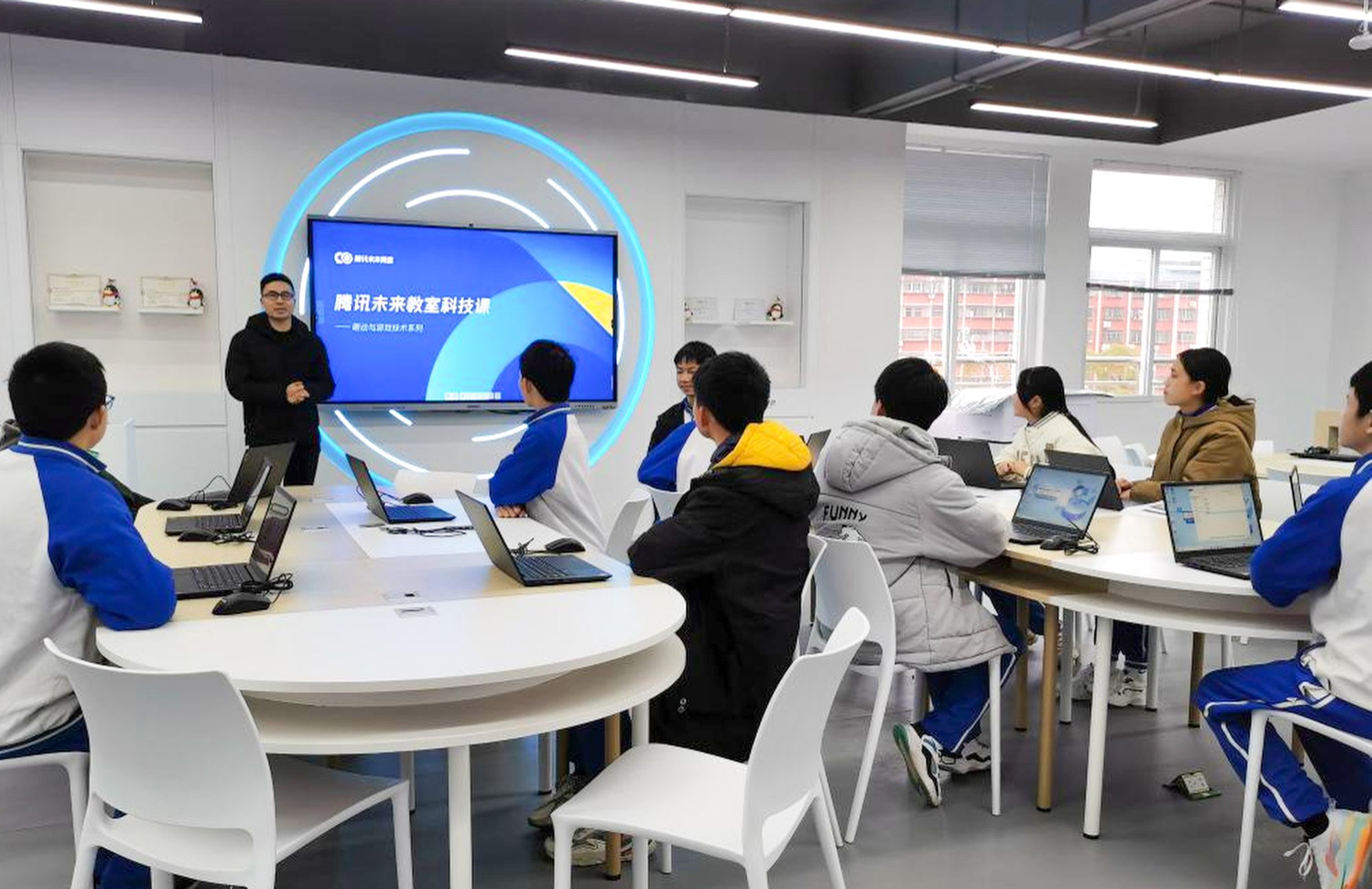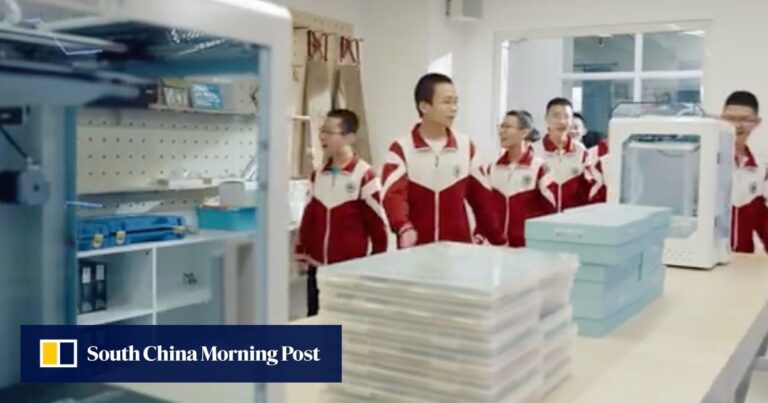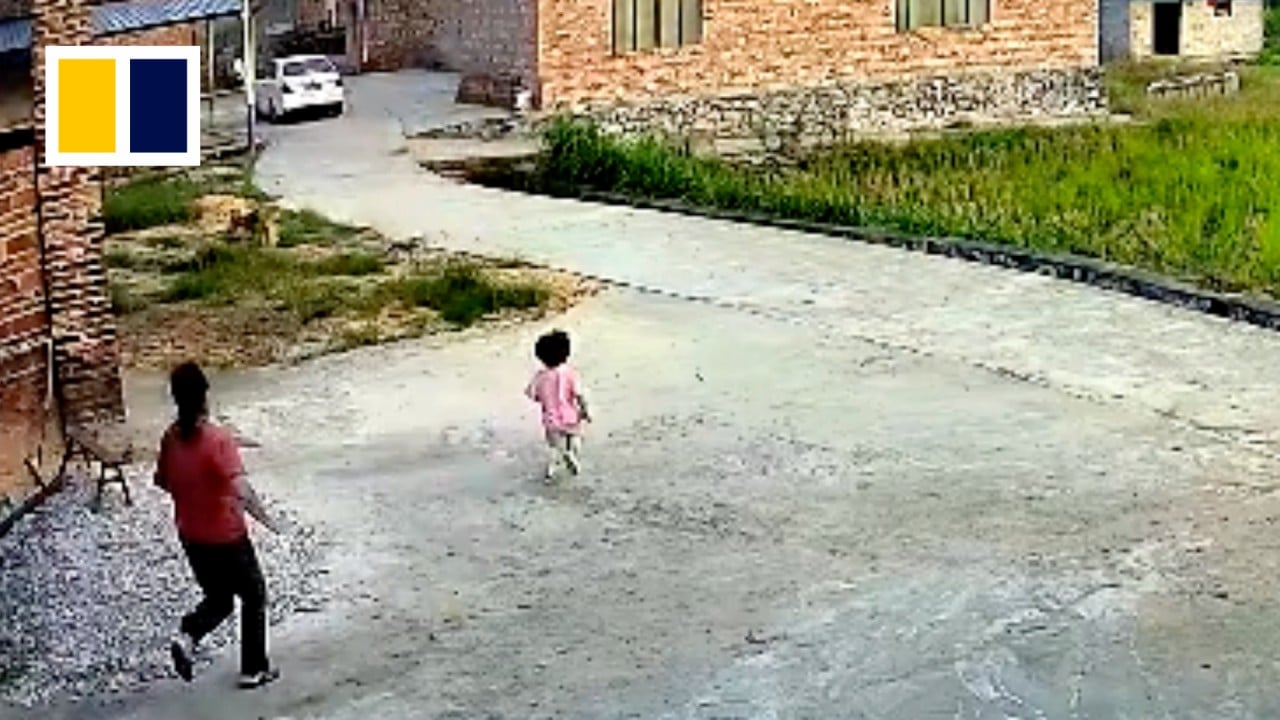This surprise victory over 102 teams, including schools from big cities such as Beijing and Guangdong province, is all the more remarkable as urban schools with better comprehensive educational resources generally perform better in such competitions.
The importance of these courses is that they expose rural children to a wider world and give them more options.
The victory of the Yunnan team, who come from a remote rural school, demonstrated that efforts to support artificial intelligence (AI) education in some of China’s most remote areas are beginning to bear fruit.
China has taken a series of measures to promote equalization of education between rural and urban primary schools through online classes and equipment donations.
The introduction of modern classrooms and improved access to advanced technology and programming instruction has raised the educational standards of rural students, enabling them to perform as well or better than their urban peers in technology competitions.
“The purpose of these courses is to show rural children a bigger world and provide them with more options,” Zhao said.
As AI begins to permeate much of everyday life, many children have the option of taking extracurricular classes to learn tech-related skills, such as programming, that were once taught only at the college level. But such educational opportunities are mostly only available in well-resourced urban areas.
One effort to equalize education is the “Classroom of the Future,” a project funded by Tencent Games to build digital education facilities in rural schools.
The program is equipping classrooms in 43 rural schools across 15 states with futuristic technology, including computers, 3D printers, laser cutters, VR headsets and programmable hardware.

The project also offers educational courses and organizes competitions to spark students’ interest in learning advanced technologies.
One of the annual competitions, the Dual Teacher Science & Innovation Camp, brings together rural teachers and urban guide teachers to work together and provide technical instruction remotely, allowing rural teachers to guide students in acquiring new skills.
At the time of the competition in December, students from Jinlong Mingde Primary School in Yunnan’s Chuxiong Yi Autonomous Prefecture had developed a game based on the new technological skills they had acquired. Based on walnuts, a Yunnan specialty, the “Mathematics Walnut Farm Game” allows players to learn math while engaging in design.
The team’s success in a major tech competition is an example of how comprehensive training, including hardware and online educational support, is helping rural students become as creative as their urban peers, who have much easier access to better educational resources.
For example, the “AI Programming Beginner’s Course,” a charity project launched by the China Soong Chingling Foundation in collaboration with Tencent, is recruiting volunteers to provide remote instruction so that young people can experience AI programming from scratch.
These courses are aimed at nurturing interest early in students’ development, but they also have another purpose: to uncover hidden AI talent in China’s vast rural areas — a long-term strategic move that could pay off in the future AI race with the United States.
Our technology courses are not focused on teaching complex programming skills, but rather on nurturing children’s interests, broadening their horizons and enabling them to discover a world that was previously unknown to them.
The thoughtful, well-designed course materials allow students to participate in scripted interactions lasting approximately an hour, helping them understand how AI works and learn basic programming logic.
Zhao, an internet content creator, was teaching an online AI science popularization class at a primary school in Fengjie, southwestern Chongqing, in December as part of the “First Lesson” project.
He then visited the school. Fengjie County is known for its dramatic, rugged mountain scenery along the Yangtze River. But while the terrain offers spectacular views, it also hampers development in the area.
It was an arduous six-hour journey through mountain roads from Chongqing airport to reach the remote school.
Two-thirds of the students at the school are “left behind children” whose parents have moved around the country for work.
But even here, far from the glitzy tech hubs of the country’s biggest cities, kids now have a ticket to China’s AI revolution.
“For many people here, becoming a migrant worker, like their parents, seems to be the only way in life,” Zhao said.
But science lessons may break new ground: “These science lessons, without complex coding, are simple so kids can understand the basics of AI,” Zhao added.
According to the First Lesson Project website, the program has expanded to 1,600 schools nationwide, with around 10,000 children in around 300 classrooms having participated in the distance AI course by the end of March.
Liu Zhe, principal of Xinhe County Experimental Middle School in northern Hebei province, spoke of years of challenges before the movement to improve access to educational resources for disadvantaged rural students took hold.
High-achieving students at his school often struggled to complete computer assignments when they got to college, sometimes taking them a week to complete tasks that their urban classmates could complete in an hour or less.
The most important aspect was the learning process itself, which allowed the students to see the same world as city children.
“Before entering university, concepts such as digitization and programming were abstract to students who had no opportunity to use computers before entering university, slowing down their learning and even inviting ridicule. [from classmates],” He said.
Liu’s school was then selected to take part in the “Future Classroom” project, giving students access to some of the most cutting-edge AI technology.
In the Dual Teacher Science & Innovation Camp competition, students from his school paired with a mentor teacher from a Macau middle school designed a water-giving robot dog, an invention that won them the top prize in Hebei province.
“The most important thing is the learning process itself, which allows the students to see the same world as city children,” said Yang Zhuanglu, a lead teacher at the school.
“Whether they achieve a high score or not, their attempt will be a big step towards escaping isolation and expanding their possibilities in life.”


